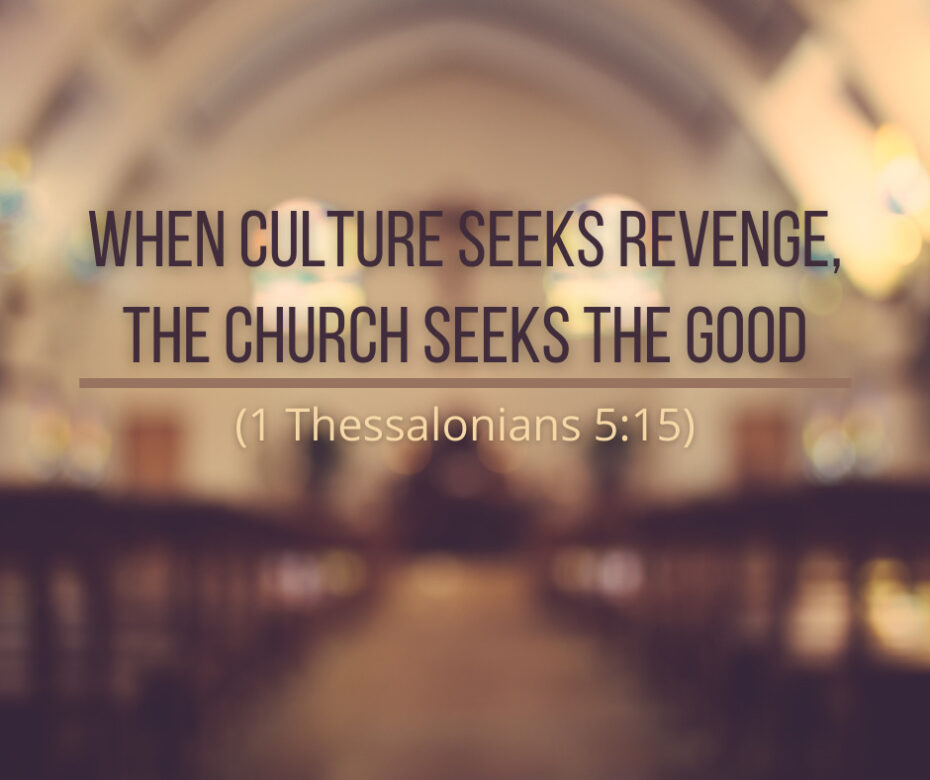Someone asked me how to cultivate a “culture of grace” in his church.
That is precisely the right kind of question to ask.
Grace should not only define the saving message (Eph 2:8-9), but the entire Christian life, including church life. Paul said we are no longer under law but under grace (Rom 6:14), and that should be reflected in your church culture.
But what does that look like?
It certainly does not look like anger and revenge. As Paul wrote:
See that no one repays another with evil for evil, but always seek what is good for one another and for all people (1 Thess 5:15).
What does a culture of grace look like?
Not like repaying evil for evil!
Or revenge!
That may be what the flesh wants, society does, and the news reports, but that is not how church life should be.
In a moral desert of revenge, church life should be an oasis of seeking to do good to your enemies—to the very people who did you evil.
I know that is outrageous.
I know that doesn’t make sense by any calculation of human justice.
And frankly, it won’t help you win nature’s bloody struggle for survival.
And yet, what do you expect? Is God’s grace in Christ supposed to make sense to the world?
No. It seems like foolishness. But who is the real fool? When people choose the bad news of revenge, don’t they always reap the predictable cycle of violence, blowback, and hurt that comes with lashing out in anger?
So don’t be shy of the foolishness of grace, because it is precisely that message that will come as good news to people burnt by revenge.
And if that is not reason enough, remember that Jesus is your King and you’re His ambassador. That means you’re here to represent Him, living according to His laws and customs, even if they seem strange to the culture around you. But maybe that’s the point.
To come back to the original question—how can you cultivate a culture of grace in your church?
You could start with revenge.
You might begin by naming and recognizing all the legitimate harms that culture says should be avenged. Don’t ignore or dismiss the devastating ways that people have been sinned against. Listen. Hear them out. But don’t stop there. Point them to the better way of the cross, where Jesus was pierced, crushed, and punished for the sins culture wants to avenge by their own hands (cf. Isa 53:5). Proclaim what the cross makes possible—that because of Jesus, you can step out of the cycle of revenge and pursue a better way.
Revenge is a bitter dish, so taste and see that the Lord is good, and seek the good of all.


